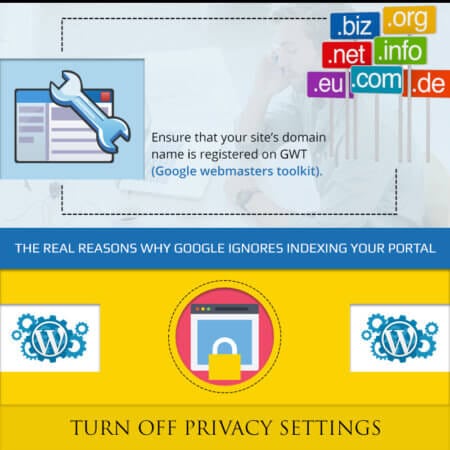 You have a website that hardly gets any traffic making you wonder as to why you engaged a webmaster to design, develop, and host the portal in the first place. The least that you can expect from Google whenever the search engine embarks on an SEO drive is to accord a rank to your site on its SERPs following indexation.
You have a website that hardly gets any traffic making you wonder as to why you engaged a webmaster to design, develop, and host the portal in the first place. The least that you can expect from Google whenever the search engine embarks on an SEO drive is to accord a rank to your site on its SERPs following indexation.
So, the upshot is that if your site is out of Google’s indexing loop, the portal is not visible online and therefore having a website is as good as not having it all. Before you can resolve your site’s indexing problem, you’ll have to identify the factors responsible for the problem. Following are some failsafe techniques or methods you can take advantage of in order to feature anywhere on Google’s SERPs.
1. Google is yet to trace your site
Since Rome was not built in a day, it’d be over optimistic on your part to expect that your website will feature on search results pages within a day or two of its hosting. However, if the portal is nowhere to be seen on the ranking pages even after a couple of weeks, you should sit up and take notice. It could be that you haven’t uploaded the sitemap or it isn’t functioning normally. At the least, you can send a mail to Google requesting it to run crawlers in order to track the site. Follow Google’s standard instructions for running crawlers.
2. Faulty indexing
Ensure that your site’s domain name http://my web sitename.com and/or http://www.my web sitename.com are registered on GWT (Google webmasters toolkit). This’ll ensure both the sites’ cataloging or filing and indicate your preferred domain but before proceeding substantiates their proprietorship.
3. Robots.txt are coming in the way of indexation
Establish whether your webmaster or SEO specialist has suffixed robots.txt after the domain name. If it is so, then your site will not be considered for indexing by Google. You’ll just need to clear the robots.txt entry in order for it t to be visible in indexes.
4. There are crawling issues
Google’s inability to crawl one or more web pages will deter the search engine from listing your portal. Failure to run crawler bots could mean there are some crawling gaffes. Crawling errors can be identified and corrected by opening up the GWT section of your site.
5. Turn off privacy settings
If your webmaster has created and hosted the site using WordPress.com, then crosscheck whether the privacy settings mode is turned on. Turn it off so that the site figures in indexed pages following an SEO drive.
6. Site is crammed with canned content
Check whether the textual content on any web page or web pages is original or not. If the backlinks on the site have identical content as your site’s, then Google will disregard indexing the portal. The only remedy is to rewrite content that passes Copyscape checks.
7. Htaccess has obstructed your site
Your site is there on Google’s servers, mainly because of its .htaccess file which allows the same to be accessed on world-wide-web. On one hand, .htaccess file can be used as a versatile web hosting tool, and on the other, it can be abused to check crawlers and thwart indexation.
8. There are issues with AJAX or JavaScript
HTML pages are most readily indexed by Google because of the programming language’s convenience. By the same token, AJAX or JavaScript configured pages are pretty complex to index. So, if the configuration of web pages related to JavaScript or AJAX is erroneous, Google will forego indexation.
9. The load-time of your site is protracted
Google prefers websites that load quickly and if your site doesn’t load rapidly enough, the search engine will not give a second thought about discarding its indexation.
